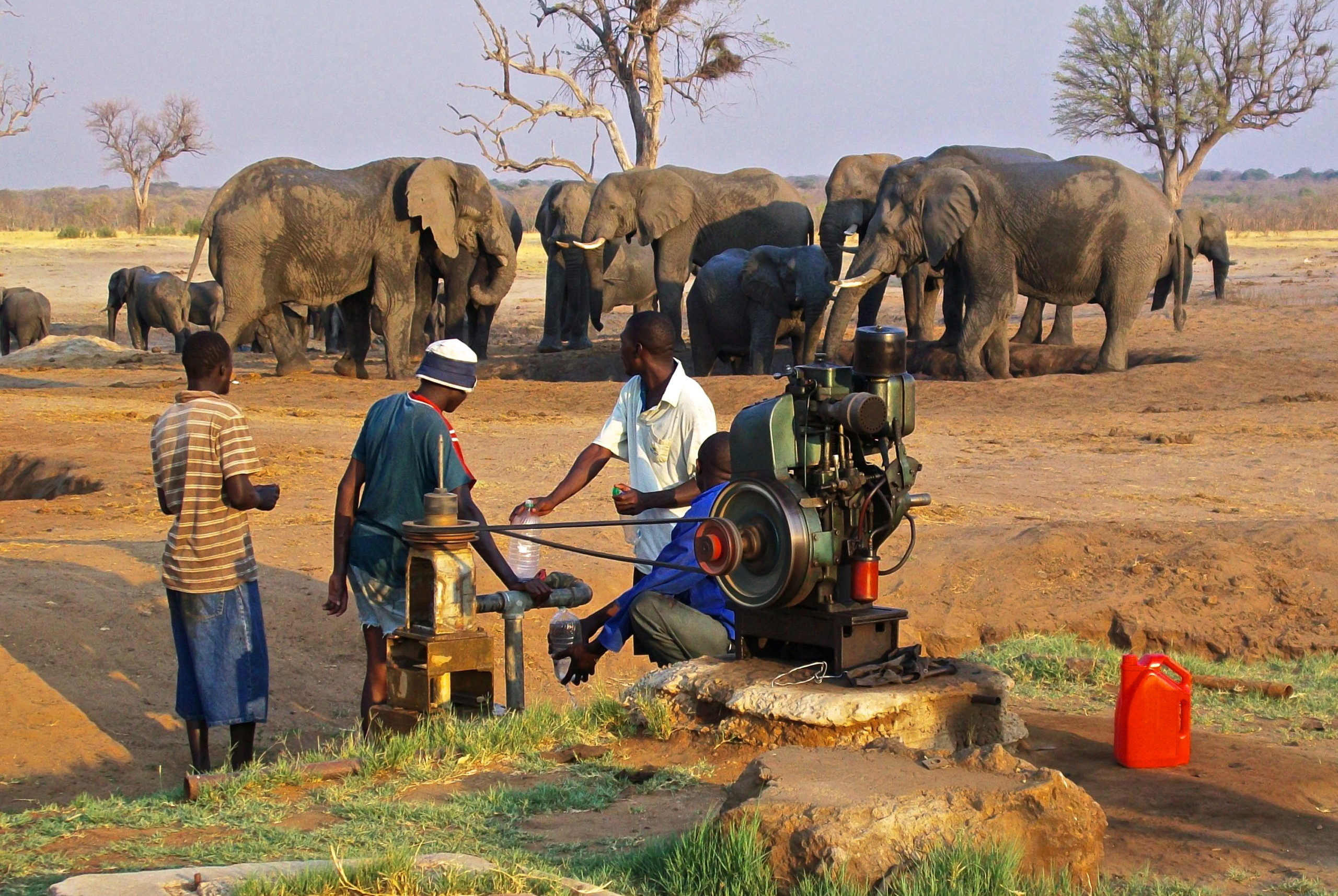Call 01306 744 656 or
Call 01306 744 656 or
It’s satisfying to support the wildlife in Zimbabwe’s most famous and largest park…

When Ted Davidson, the first warden to work in Hwange National Park, arrived in 1928, you can only imagine his surprise when he discovered there was no reliable surface water available for the wildlife during Hwange’s long dry seasons. During the wet season, the wildlife would flourish but when the rain ceased and the pans dried up, the animals would vanish, migrating to rivers outside the boundaries of the park. After some five years of mapping terrain and studying the environment while every dry season feeling frustrated by his inability to sustain his wildlife and in particular the elephants under his protection, it became clear that something needed to change. Davidson, a resourceful character, pressured the colonial authorities to release funding so he could establish year-round waterholes fed by windmills. The wildlife quickly responded and flourished under this new system.
When I came to Hwange as a young warden in the 1980s, we were already replacing windmills with diesel engine-driven pumps not beholden to the vagaries of the winds. These clever contraptions were deemed more effective at pumping the requisite amount of water needed to sustain the larger population of wildlife now inhabiting the park. Today I am the Manager Director of Imvelo Safari Lodges including Bomani Tented Lodge located on the south-east periphery of the park. From this remote outpost our guests can actually see these pumps in action on a pump run while delivering fresh food and technical supplies to the pump attendants. From May to November every year, enthusiastic youngsters, all hailing from the front-line villages, man each of the 19 waterholes across the 120km for which my team are responsible.
Today most of the diesel engines have been replaced by solar hybrid pumps. The solar component pumps water during the day time and the diesel hybrid component takes over in the evening as much of Hwange’s wildlife, in particular our famous elephant herds, drink all through the night. Not only is it satisfying to be involved in sustaining the wildlife in Zimbabwe’s most famous and largest park but it’s a fun day out too sandwiched between safari game drives and a delicious picnic lunch.
Your journey will start with one of our UK team – someone like Adele, who's travelled extensively in Zimbabwe. They’ll shape your ideas into the trip of a lifetime. But they won't do it alone. They'll draw on the expertise of our contacts on the ground, connecting you to the people who'll make your holiday one you'll always remember – the ranger who can show you the best game viewing and fishing spots on the Zambezi, the guide who’ll introduce you to ‘moonbows’ at Victoria Falls and the locals who’ll share their dinner with you.
Freephone an expert 01306 744 656